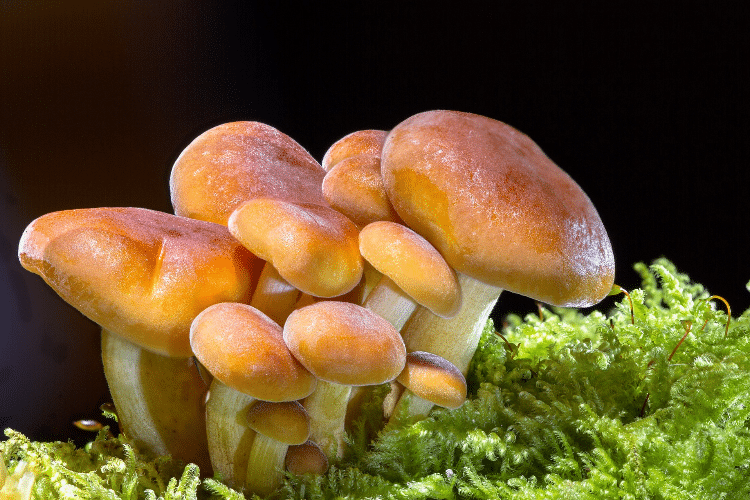
Home Remedies for Whooping Cough
Garlic Syrup: 5 drops-1 tsp, 2-3 times a day. Ginger: Fresh ginger juice (1 tsp) mixed with a cup of fenugreek decoction and honey to taste. Radish: Fresh radish juice+honey (1 tsp each) with a pinch of rock salt. Almond oil: 5 drops mixed with ginger+white onion juice (10 drops each), 3 times a day. Calamus: A pinch of the roasted Calamus powder with a tsp of honey.
A whooping cough (pertussis) is a highly contagious bacterial infection of the upper respiratory system–specifically, the area where the nasal passages meet the back of the throat (nasopharynx). The infection causes irritation in breathing passages, resulting in severe coughing spells. The illness has three distinct stages and can last months. Complications like pneumonia can result from whooping cough. These kinds of problems…
Whooping cough (pertussis) is a highly contagious bacterial infection of the upper respiratory system—specifically, the area where the nasal passages meet the back of the throat (nasopharynx). The infection causes irritation in breathing passages, resulting in severe coughing spells. The illness has three distinct stages and can last months.
Complications like pneumonia can result from whooping cough. These kinds of problems can be very serious in young children, especially babies who are born early or who have not been immunized. Older adults are also more to develop complications from whooping cough.
Table of Contents
What Are Its Symptoms?
Symptoms of whooping cough typically last 6 to 10 weeks (but may last longer), and they occur in three stages:
First stage
Symptoms of cold begin and last for several days to 2 weeks. Symptoms usually include sneezing, a runny nose, mild coughing, watery eyes, and sometimes a mild fever. An infected person is most contagious during this stage.
Second stage
The most serious symptoms develop during this phase and last about 2 to 4 weeks or longer. As cold-like symptoms fade, the cough gets worse. A dry, hacking cough intensifies into bursts of uncontrollable, often violent coughing that may make it temporarily impossible to breathe. The person may quickly inhale when trying to take a breath through airways narrowed by inflammation, which sometimes creates a whooping noise.
Third Stage
Lasting for a few weeks or months is a gradual recovery period. Although the person gains strength and begins to feel better, the cough may become louder and sound worse. Coughing spells become less frequent but may flare up again if a cold or other upper respiratory illness develops. This final stage may last longer in people who were not given the whooping cough (pertussis) vaccine.
Complications, such as pneumonia or exertion-related injuries from coughing, such as a hernia, can develop from whooping cough. These types of health problems pose the most serious risk to children younger than 4 months and adults aged 60 and older.
How Does Whooping Cough Affect Babies?
This may be triggered by very slight stimulation, such as taking in food or milk, sucking, exposure to a sudden sound or light, or stretching.
The symptoms that could occur are the following: flushed cheeks, pale or bluish complexion caused by a lack of oxygen, and bulging or watery eyes. A baby may also stick out his or her tongue, push the chest forward, or flailing arms and legs in distress.
This may be frightening to watch, although most babies recover and regain control of their breathing on their own. Babies generally feel well between coughing spells but may become exhausted from the physical effort of coughing. This may lead to hospitalization, especially if the baby is younger than 4 months of age. Hospitalization allows health professionals to monitor the baby’s condition and evaluates how well he or she tolerates and recovers from coughing episodes.
Home Remedies for Whooping Cough
Garlic
Garlic is one of the most effective remedies for whooping cough. The syrup of garlic should be given in doses of five drops to a teaspoon, two or three times a day, for treating this condition. It should be given more often if the coughing spells are frequent and violent.
Ginger
Ginger is another effective remedy for whooping cough. A teaspoon of fresh ginger juice, mixed with a cup of fenugreek decoction and honey to taste, is an excellent diaphoretic. The fenugreek decoction can be made by boiling one teaspoon of seeds in 250 ml of water until it is reduced to half.
Radish
Syrup prepared by mixing a teaspoon of fresh radish juice with an equal quantity of honey and a little rock salt is beneficial in the treatment of this disease. It should be given thrice daily.
Almond Oil
Almond oil is valuable in whooping cough. Five drops of almond oil should be mixed with ten drops each of fresh white onion juice and ginger juice, and taken thrice daily for a fortnight. It will provide relief.
Calamus
The herb Calamus is another valuable remedy for whooping cough. A pinch of the powder of the roasted herb should be given with a teaspoon of honey. Being antispasmodic, prevents severe bouts of coughing. For smaller children, the dose must be proportionately smaller.






